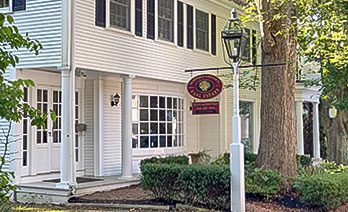|
EFFECTIVE DATE
|
For stays starting July 1, 2019 that are booked January 1, 2019 or later. If a lease was signed prior to January 1st, no tax is due.
|
|
REGISTRATION
|
Each rental unit will need to be listed with the state short-term rental registry. Additionally, each city and town is permitted to create a registration requirement for short term rentals. Check with your municipal government office for details.
|
|
DURATION OF STAY
|
For any stays of 31 days or less
*Tenancy at will exempted
|
|
TAX RATE
|
State Tax: 5.7% (Note: the law says 5%, but a 1964 law amended the state amount to 5.7% from 5%)
Local Tax: up to 6% (Click HERE for a list of the current tax rate in each town)
Cape Cod & Islands Water Protection Fund: 2.75%
*Every town in Barnstable, Dukes, and Nantucket counties are automatically opted in; their legislative body can opt out with a 2/3rds vote*
Community Impact Fee: up to 3%
This is an optional tax a town can add via their legislative body for those who own multiple properties; to date, no town has adopted this tax in Barnstable, Dukes, and Nantucket counties. The Massachusetts Association of REALTORS has produced a Short-Term Rental Community Impact Form for the homeowner to sign that certifies that they only one unit for rent in a given town.
|
|
TAX COLLECTION & REMITTANCE
|
The law requires whoever collects payment for the rental to collect the tax and remit it to the Commonwealth. The Department of Revenue will issue regulations to clarify how often the tax should be remitted to the Department.
The law requires regulations to minimize the administrative burden on tax filings for those who only rent their unit five (5) months or less each year. This will be addressed in subsequent Department of Revenue regulations.
|
|
INSURANCE
|
Every home owner that rents out their property must carry not less than $1 million of liability coverage for each stay unless the hosting platform provides equal or greater coverage. Coverage shall defend and indemnify the operator and any tenants or owners in the building for bodily injury and property damage arising from the short-term rental. However, if the hosting platform (the real estate brokerage, HomeAway, Airbnb, etc.) can elect to provide the coverage for their properties on behalf of the owner.
Real estate brokerages, acting as hosting platforms and intermediaries, have to provide notice to the owner of the insurance requirement. The Massachusetts Association of REALTORS has created an Insurance Disclosure form for REALTORS to use with the owners of properties they handle short-term rentals for to disclose the insurance requirement. The best practice is to get every homeowner to sign this disclosure.
|
|
Exemptions
|
The tax imposed by the new law does not apply to properties rented for fewer than fourteen (14) days per calendar year. It is important to note that these properties are still subject to the other requirements of the law, such as insurance and registration and these properties must file a notice with the Department of Regulation saying they will only rent for less than 14 days and will be responsible for paying the taxes themselves if rented for more than 14 days and did not collect it for the first 14 days. A real estate brokerage can use this 14-day Disclosure Form for any owner intending to rent their property for less than 14 days per year.
|
|
INSPECTIONS & ADDITIONAL REGULATIONS
|
Cities and towns may implement a health and safety inspection requirement and set the frequency of inspections. Short-term rental operators are required to cover the cost of inspections and will likely face a fee to cover registration costs as well.
|
|
|





